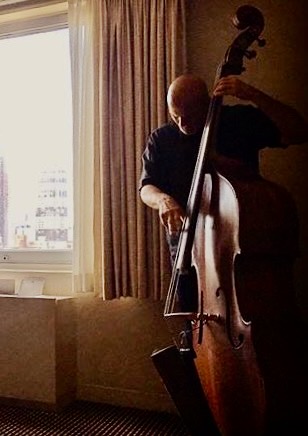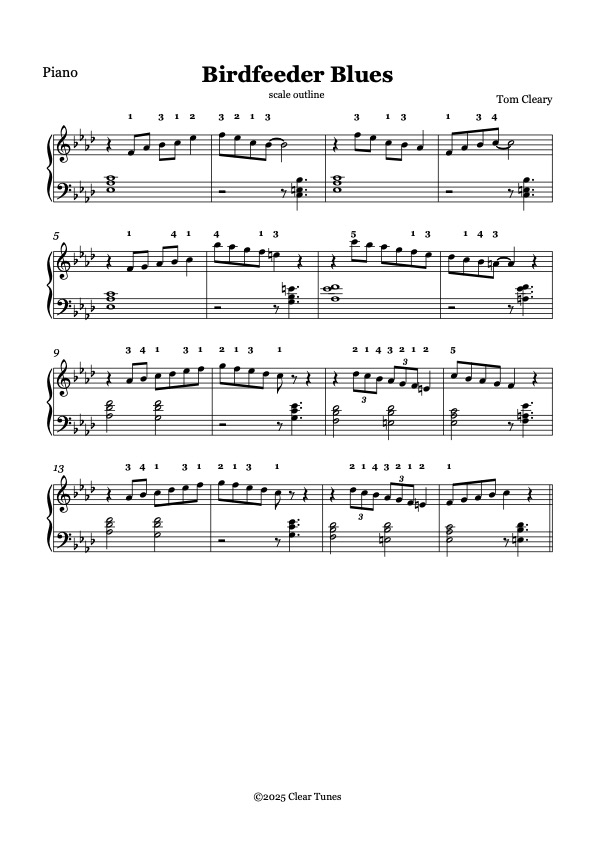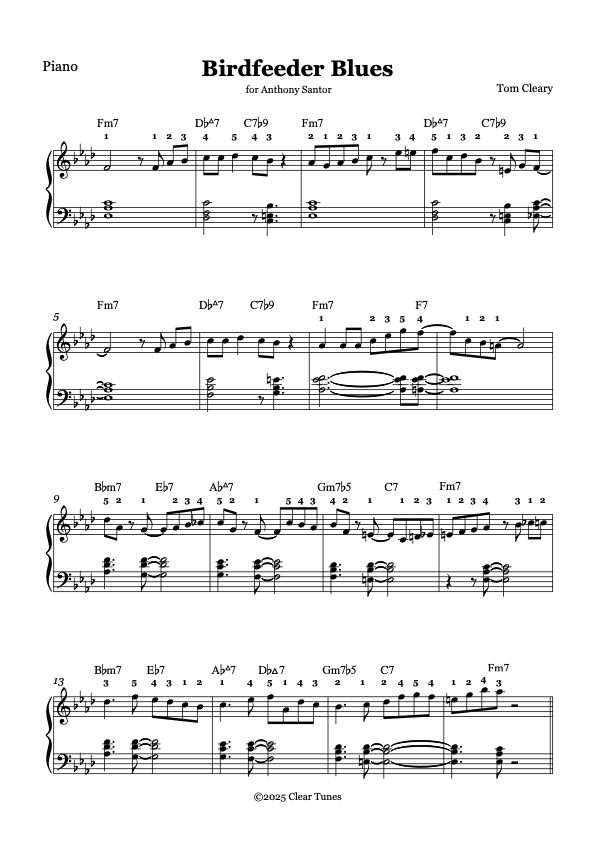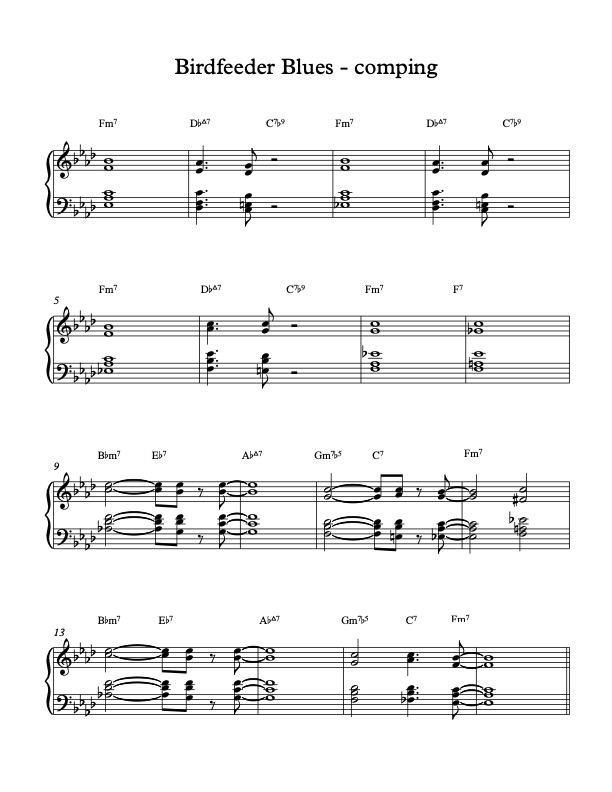
Bassist Anthony Santor was an anchor of the Vermont jazz scene for something like 25 years, playing with musicians including guitarist Nicholas Cassarino, trumpeter Arthur Brooks and tenor saxophonist John McKenna. During that time he carried on the unique dual careers of jazz bassist and massage therapist. A number of the gigs I played with Anthony were in his hometown of Waitsfield, and at least in the establishments where we played, including Villa Tragara (now Michael’s) and American Flatbread, he knew so many people that he almost seemed to be the unofficial mayor of the town. Today, Anthony has retired from playing bass but continues as a masseuse, and divides his time between Vermont and Montreal. I recently discovered John McKenna’s 2020 album Portraits, where he and Anthony collaborate with two jazz legends, drummer Victor Lewis and pianist Bruce Barth. Portraits is full of amazing McKenna compositions, including Rascal, a blues with shapeshifting time signature changes, and the beautiful Song For Paul, where Anthony’s trademark rich, round sound can be heard on his inspired bass solo. I had the good fortune to play a number of gigs with Anthony between the late 1990s until around 2019, including at least one gig with John McKenna. One of the tunes Anthony introduced me to is Rashaan Roland Kirk’s ‘Serenade To A Cuckoo’.
I describe Kirk as a jazz mystic (in the dictionary page I have linked to, see definition 1 under ‘Noun’ and definitions 2,4,5 and 6 under ‘Adjective’.) He was a multi-instrumentalist who specialized in tenor saxophone and flute and was known for playing two or three wind instruments at once. Kirk was blind from an early age, but this never inhibited his work, as he was possessed of a supercharged imagination and seemingly ceaseless musical creativity. This video of him strolling through a zoo with a child (presumably one of his daughters) sitting on his shoulders and imitating the sounds of various animals on his flute suggests one way Serenade To A Cuckoo, with its evocation of birdsong, might have come into being. Kirk’s original recording of the tune appears on his 1965 album I Talk To The Spirits, featuring the great Horace Parlan on piano and Kirk on flute. The tune’s chord progression could be described as the vamp from Ray Charles’ Hit The Road Jack followed by a compressed version of the first half of the chord progression to Autumn Leaves. (My tune Paul’s Question is based on that progression). Some variations on the ‘Hit The Road Jack’ progression emerge during the solos. During his piano solo, instead of a fourth repeat of the two measure Fm7-Eb7-Db7-C7 progression in measures 7 and 8 of the form, Parlan plays a bar of Fm7 followed by a bar of F7. This relieves the repetitiveness of the F minor vamp and creates harmonic forward motion toward the Bbm7 in bar 9 that starts the ‘Autumn Leaves’ half of the progression.
My tune Birdfeeder Blues is based on this slightly more elaborate version of the progression. It also works as a countermelody to Serenade To A Cuckoo. I would recommend learning Kirk’s tune first. Here is a link to a video of my melody arrangement of Serenade To A Cuckoo. Next, learn this scale outline of the progression based on the changes Horace Parlan uses in his solo. Here is a link to a keyboard video of the scale outline and a notated version of the scale outline:

As one example of how to create a melodic line out of the progression, you could learn my tune Birdfeeder Blues. Here is a link to a keyboard video of Birdfeeder Blues and a chart of the tune:

In addition, here is a sheet of comping using rootless voicings:

This comping is demonstrated in my audio demo recording of Birdfeeder Blues, which I made using a loop from the DrumGenius app. Lastly, here is a link to the bass and drum playalong for Birdfeeder Blues that I used in the first two videos. It plays through the progression four times, which allows you to play Serenade To A Cuckoo as the head in, solo for two choruses or solo for one chorus and comp for one, and return to either Serenade or Birdfeeder Blues.
It’s cool how you combine stories about playing with Anthony Santor with all the musical analysis, and I find it funny and odd that he was a massage therapist in addition to being an important person in the Vermont jazz scene. He seems to have led a really fulfilling life, and it’s awesome that you were able to collaborate with him. The part about Rahsaan Roland Kirk really caught my attention too because calling him a “jazz mystic” feels perfect and the idea of him walking through a zoo imitating animals on the flute is definitely a vivid image. I hadn’t realized how the chords from “Serenade to a Cuckoo” connect to “Hit the Road Jack” and “Autumn Leaves,” so it’s cool seeing how that inspired “Birdfeeder Blues.” and this post made me want to check out Kirk’s “I Talk to the Spirits” album as I could probably learn something from it.
I listened to Song for Paul. The bass solo felt like walking in a park along a river and observing the birds, while reminiscing about the past yet feeling grateful for the present. The “round” sound felt gentle, yet purposeful. Anthony Santor adds a grounded depth to the song that complements the more lively saxophone melody.